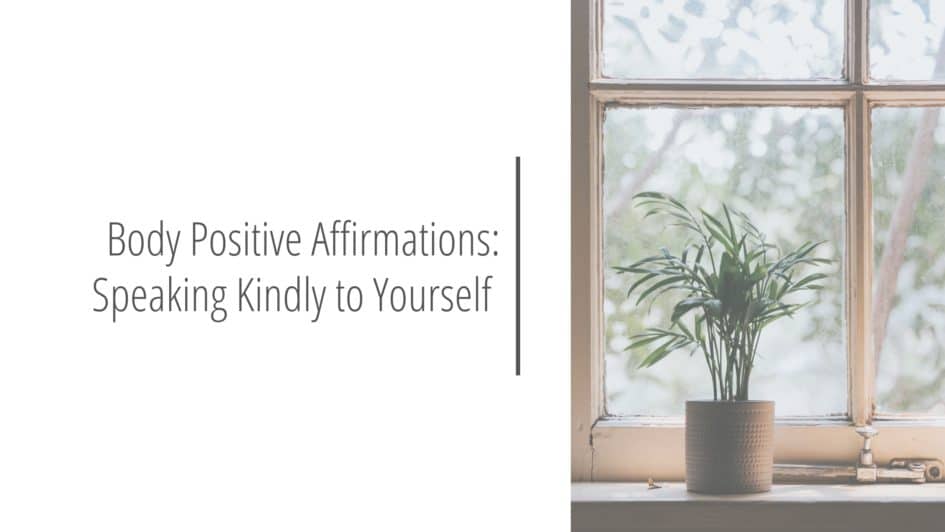Table of Contents
Why Body Positive Affirmations Matter
We live in a world that constantly tells us our bodies aren’t good enough. Whether it’s through social media, advertisements, or well-meaning (but harmful) comments from others, we’re bombarded with messages that make us feel like we need to change. But what if we decided to stop listening to those messages and started talking to ourselves with kindness instead? That’s where body positive affirmations come in.
Affirmations are simple, yet powerful, statements that can help shift our mindset and challenge the negative thoughts we’ve internalized. They won’t magically erase years of self-doubt overnight, but with consistency, they can help rewire the way we think about ourselves and cultivate a more positive body image.
Why Affirmations Work: The Science Behind It
Research in cognitive behavioral therapy (CBT) and neuroscience suggests that affirmations can help rewire our brains by reinforcing positive thought patterns. According to studies on self-affirmation theory, practicing positive self-talk activates the brain’s reward system and reduces stress responses (Cascio et al., 2016).
Repeating affirmations can strengthen neural pathways associated with self-worth, making it easier to challenge negative self-perceptions over time. In short, the more we affirm our value and worth, the more our brains begin to believe it.
If you’re looking to build a more compassionate relationship with your body, here are 20 body positive affirmations to get you started, each with a little insight into why it’s helpful.
20 Body Positive Affirmations and Why They Help
1. My body is my home, and I treat it with kindness.
Your body is where you live every single day. Instead of criticizing it, try to see it as a safe and welcoming space. Treating your body with kindness means giving it rest, nourishment, and care, just like you would your physical home.
2. I am worthy of love and respect, just as I am.
Your value is not dependent on your appearance or weight. Recognizing your inherent worth allows you to cultivate self-respect.
3. I deserve to take up space.
Society often encourages people, especially women, to shrink themselves, whether physically or emotionally. This affirmation reminds you that your presence, voice, and needs are just as important as anyone else’s.
4. Food is not the enemy.
Food is fuel, comfort, culture, and connection. Seeing food as something to enjoy rather than something to fear helps break free from restrictive dieting and encourages a healthier relationship with food.
5. I choose to move my body in ways that feel good.
Exercise should be about joy, not punishment. When you find movement that makes you happy, aka joyful movement, it becomes a celebration of what your body can do.
6. I am more than my appearance.
Your worth is not tied to how you look. Your intelligence, kindness, passions, and personality define you far more than any external trait ever could.
7. My body does so much for me.
Rather than focusing on what your body looks like, acknowledge everything it does for you daily like breathing, healing, moving, and keeping you alive.
8. I do not need to earn rest.
Rest is a fundamental need, not a reward. Allowing yourself to rest without guilt promotes better mental and physical health.
9. All bodies are good bodies, including mine.
There is no such thing as a wrong body. Every body, regardless of size, shape, or ability, is valid and deserving of respect and care.
10. I refuse to let society dictate how I should feel about my body.
Taking back control over your self-perception allows you to define beauty and worth on your own terms, rather than through society’s unrealistic standards.
11. I will not compare my body to someone else’s.
Everyone’s body is different, and that’s okay. Comparing yourself to others only fuels dissatisfaction, while embracing your uniqueness fosters self-acceptance.
12. I release the need for perfection.
Perfection is an impossible standard. Aiming for it only leads to frustration, while self-compassion allows you to grow and thrive.
13. My body is not a problem to be fixed.
You are not a project that needs improvement. Learning to see yourself as whole and complete right now is a powerful step forward.
14. I trust my body’s wisdom.
Your body communicates its needs through hunger, fatigue, and emotions. Tuning into these signals rather than ignoring them fosters a healthier relationship with yourself.
15. I deserve to wear clothes that make me feel good.
You don’t have to dress to “flatter” or hide yourself. Wearing what makes you comfortable and confident is a radical act of self-acceptance.
16. I am allowed to set boundaries with people who make me feel bad about my body.
You have the right to distance yourself from conversations or people that make you feel unworthy. Protecting your self-esteem is an act of self-care.
17. I am not defined by a number on the scale.
Your weight does not determine your health, happiness, or worth. Shifting focus from numbers to how you feel can be freeing.
18. I will speak to myself the way I would speak to a loved one.
We often hold ourselves to harsher standards than we do others. Treating yourself with the same kindness you give loved ones helps build self-compassion.
19. It’s okay to have bad body image days.
No one feels great about their body all the time. What matters is not letting those moments define your overall self-worth.
20. I am learning to love my body more every day.
Body acceptance is a journey, not a destination. Each small step forward is a victory worth celebrating.
Final Thoughts
Affirmations alone won’t undo years of conditioning, but they’re a great tool for challenging the narratives that diet culture and unrealistic beauty standards have ingrained in us. The more you practice speaking kindly to yourself, the more natural it will become. You deserve to feel at home in your body, and I hope these affirmations help you take a step toward that.
Thanks for reading!
Rachel Beiler, MHS, RD, LDN
References
Cascio, C. N., O’Donnell, M. B., Tinney, F. J., Lieberman, M. D., Taylor, S. E., Strecher, V. J., & Falk, E. B. (2016). Self-affirmation activates brain systems associated with self-related processing and reward and is reinforced by future orientation. Social Cognitive and Affective Neuroscience, 11(4), 621-629.


Leave a Reply